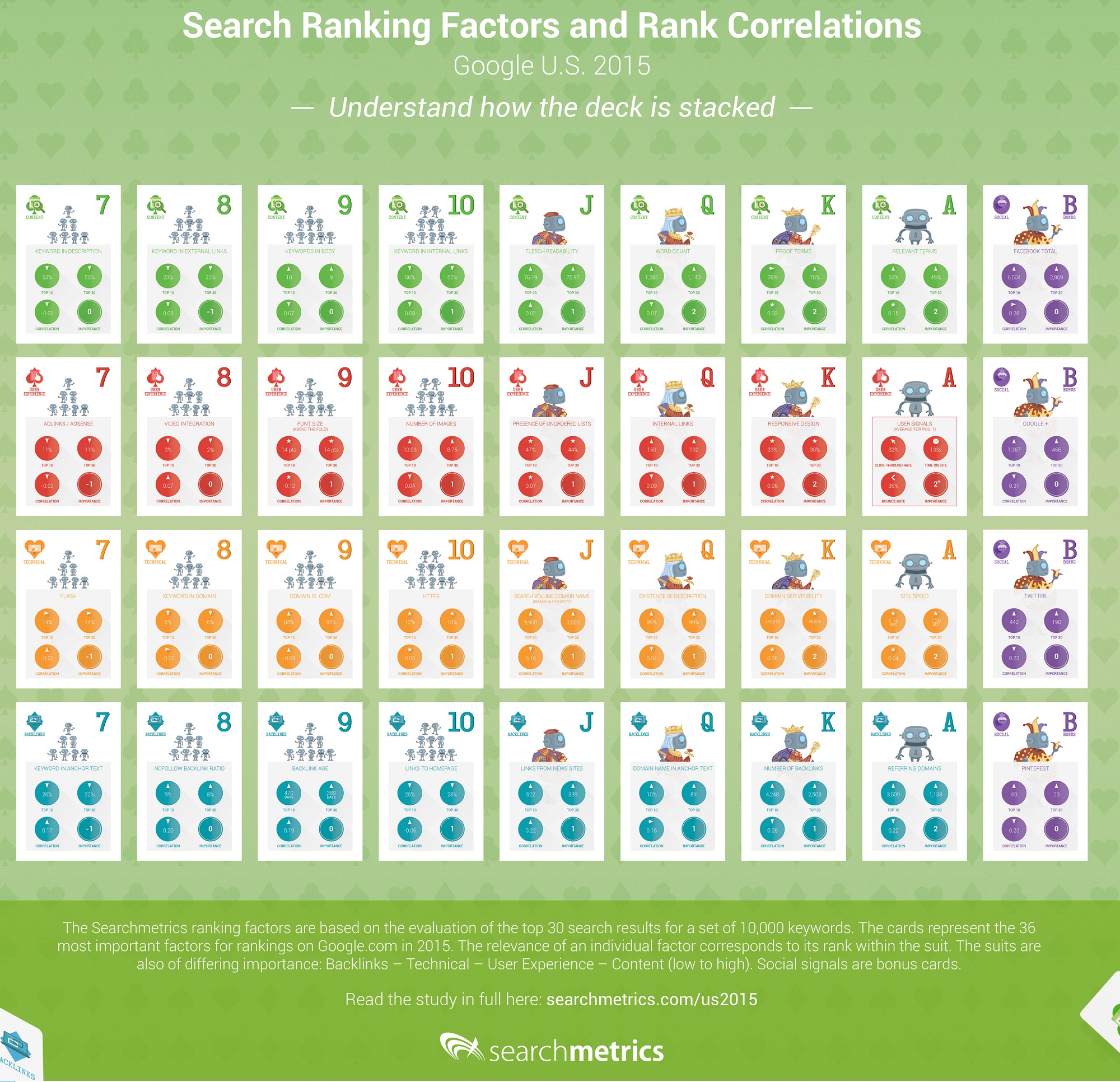Google is now more focused than ever on giving higher search rankings to good quality web content that is easy to understand and relevant to the query, while the days are numbered for old-style SEO such as link building or keyword density, according to new research.

New research from Searchmetrics also indicates that positive user signals such as ‘time on site’ help Google determine the relevance of content.
The annual study looks for top ranking search results on Google.com
Additional new findings include the fact that on average 30% of sites that appear in the top 30 Google US search results use responsive design to optimise the search experience by automatically adjusting the format to suit a mobile, tablet or computer.
As increasing numbers of users search on the move, responsive web design is more important.
In its annual study Search Ranking Factors and Rank Correlations – Google US 2015, Searchmetrics once again analysed the top 30 search results for 10,000 relevant keywords and 300,000 websites appearing on Google.com.
The aim of the analysis (which has been carried out every year since 2012) is to identify the key factors that high ranking web pages have in common and provide insights and benchmarks to help marketers, webmasters and SEO professionals.
The study measures the correlation between the presence of a wide list of factors amongst high-ranking Google.com search results.
The most important findings include:
•Relevant, comprehensive content is more important than ever
Factors associated with the quality of content on web pages are increasing in importance. Higher ranking pages tend to have more words and are better able to give searchers the information they are looking for by covering topics more comprehensively, as well as being easier to read and understand.
Since last year the average word count on pages in the top 10 search results has increased by around a quarter (rising from 975 to 1285 words), while there is evidence that high ranking pages cover topics more comprehensively, touching on a variety of related topics.
•Pay attention to user experience and user signals
Websites that rank higher are better structured, more often responsive, have a better internal link structure and offer a user-friendly experience. “Closely relate to the content and user experience are user signals such as time on site and bounce rates because they tell Google if people find your information useful and engaging,” said Tober. “Google can measure these signals very effectively, for example by analysing user behaviour from people who use its Google Chrome web browser. So if you want your pages to rank well, you can’t get away with providing content that isn’t relevant or by providing a poor experience.”
•Technical optimisation is a basic requirement for rankings
In addition, technical factors such as having a title tag and description in a web page’s underlying source code, and having pages that are quick to load, are standard requirements that almost all pages in the top 30 results display.
•Decline of single keyword focus and relevance of backlinks
The number of backlinks to a page from other pages is still a factor that is highly correlated with search ranking positions but its importance is declining.
The most important message from the 2015 study is that as the trend away from keywords and towards relevant content is continuing, high-ranking sites are shifting their focus from using keywords based on search queries to trying to understand the user’s intention as a whole and reflecting this in quality, logically structure content.
Marcus Tober, CTO and Founder of Searchmetrics reemphasizes this finding: “Our research indicates that simplistic tactics that may have been effective in the past – such as increasing the number of keyword mentions on the page or using keywords in the domain name – are not enough to lift you up the search results. You need to try and understand the searcher’s intention and ensure your web content gives them the information they are looking for, ensuring you cover topics in sufficient detail.”

View the larger infographic here
Methodology
Conducted in April 2015, the study analyzed Google US (Google.com) search results for 10,000 keywords and 300,000 websites, featuring in the top 30 positions, as well as billions of backlinks, Tweets, Google plus ones, Tweets, Pins and Facebook likes, shares and comments. The correlations between different factors and the Google search rankings were calculated using Spearman’s rank correlation coefficient. This year the study underwent an overhaul and now features a brand new design including more intuitive charts.
